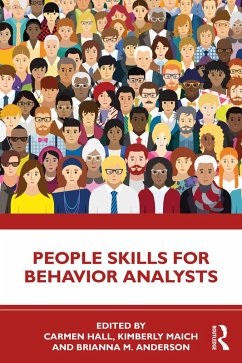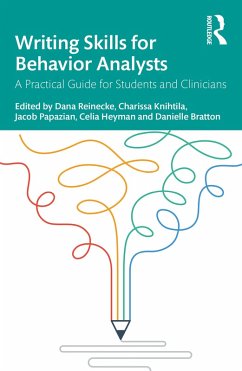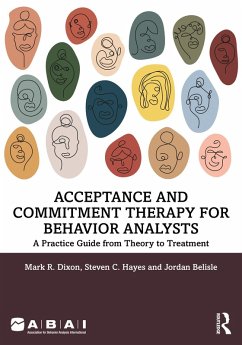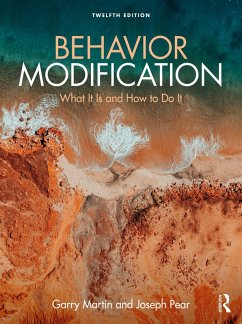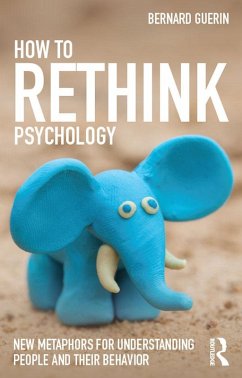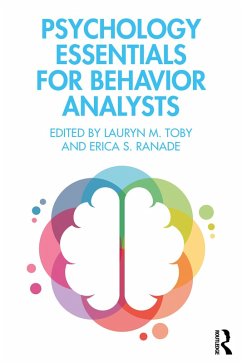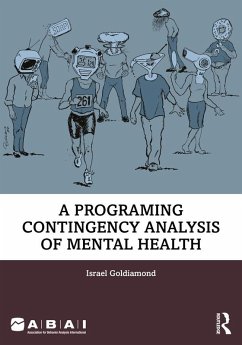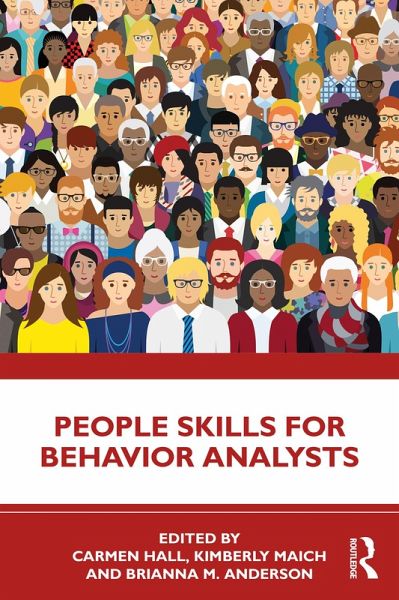
People Skills for Behavior Analysts (eBook, PDF)
Versandkostenfrei!
Sofort per Download lieferbar
43,95 €
inkl. MwSt.
Weitere Ausgaben:

PAYBACK Punkte
22 °P sammeln!
People Skills for Behavior Analysts provides a much-needed introduction to the people skills needed to succeed as a behavior analyst.Divided into two primary parts - Foundational Skills and Specialized Skills - this book addresses an impressive breadth of people skills, focusing on intrapersonal and interpersonal skills, collaboration, consultation and training, leadership, and resource development. Relying on recent evidence-based practices and relevant literature tailored to meet the new BACB Task List, Professional & Ethical Compliance Code, and Supervised Independent Fieldwork requirements...
People Skills for Behavior Analysts provides a much-needed introduction to the people skills needed to succeed as a behavior analyst.
Divided into two primary parts - Foundational Skills and Specialized Skills - this book addresses an impressive breadth of people skills, focusing on intrapersonal and interpersonal skills, collaboration, consultation and training, leadership, and resource development. Relying on recent evidence-based practices and relevant literature tailored to meet the new BACB Task List, Professional & Ethical Compliance Code, and Supervised Independent Fieldwork requirements, the text includes contributions from leading figures from a wide variety of applied behavior analysis subfields to provide a truly balanced overview. The book delves into the literature from fields related to behavior analysis, such as counselling, psychology, graphic design, management and education, and applies these perspectives to behavioral theories and principles to provide students, new graduates, and seasoned professionals with research, best practices, reflective questions, and practical techniques. From reflecting on one's practice, to learning essential therapeutic skills, running a great meeting, becoming a 'super' supervisor, and delivering a memorable presentation, all people skills are included in one place for the behavior practitioner.
This is a valuable resource for undergraduate and graduate students studying Applied Behavior Analysis (ABA), and will also appeal to recent graduates and behavior analysts looking to improve their existing skillset.
Divided into two primary parts - Foundational Skills and Specialized Skills - this book addresses an impressive breadth of people skills, focusing on intrapersonal and interpersonal skills, collaboration, consultation and training, leadership, and resource development. Relying on recent evidence-based practices and relevant literature tailored to meet the new BACB Task List, Professional & Ethical Compliance Code, and Supervised Independent Fieldwork requirements, the text includes contributions from leading figures from a wide variety of applied behavior analysis subfields to provide a truly balanced overview. The book delves into the literature from fields related to behavior analysis, such as counselling, psychology, graphic design, management and education, and applies these perspectives to behavioral theories and principles to provide students, new graduates, and seasoned professionals with research, best practices, reflective questions, and practical techniques. From reflecting on one's practice, to learning essential therapeutic skills, running a great meeting, becoming a 'super' supervisor, and delivering a memorable presentation, all people skills are included in one place for the behavior practitioner.
This is a valuable resource for undergraduate and graduate students studying Applied Behavior Analysis (ABA), and will also appeal to recent graduates and behavior analysts looking to improve their existing skillset.
Dieser Download kann aus rechtlichen Gründen nur mit Rechnungsadresse in A, B, BG, CY, CZ, D, DK, EW, E, FIN, F, GR, HR, H, IRL, I, LT, L, LR, M, NL, PL, P, R, S, SLO, SK ausgeliefert werden.




